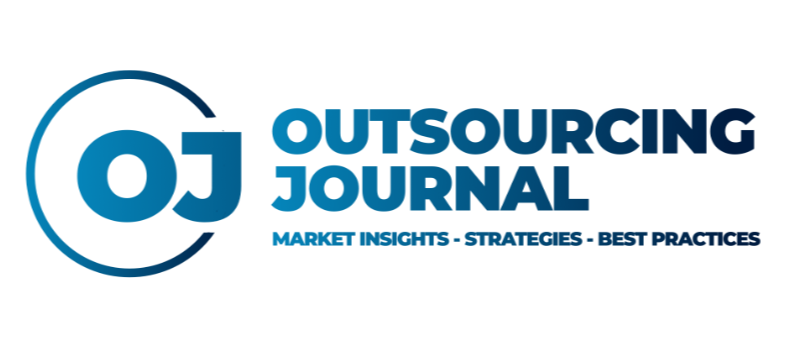[vc_row][vc_column][vc_column_text]By Dr.-Ing. Olaf Röper, CIO i.R. and Advisor to CxO’s – As part of an outsourcing agree- ment, the ITO contract partners generally agree on how the future operation is to be carried out. Negotiations on service-level agreements and the associated measurement procedures are long and intensive. The risks of all possible eventualities and deviations are thoroughly analysed, measures are assured and, if neces- sary, a penalty agreement is created.
Are transition and transformation neglected topics?
On the other hand, the preceding project phases of transition and/or transformation are considered both necessary and troublesome. In many cases, compliance with a given schedule is the focus here.
Often, the deadlines also arise from the internal necessities of the contractor, the provider is essentially required to document these plans by means of (a more or less) rough re- source planning.
The customer is often of the opinion that the partner “will master all upcoming problems, since he is well acquainted with the operation business”.
The errors of the starting phase are difficult to correct
The fact that essential conditions for the long- term success of the entire project are laid down in this phase of the project is often completely underestimated.
In other words, insufficient management of these phases can lead to the failure of the overall project. Each CIO will confirm from their own experience or knowledge of networks that this topic is highly relevant, even though, for obvious reasons, there is no current, robust statistical analysis.
The failure to comply with given milestones in the transition and transformation phases inevitably leads to higher costs. Operational distur- bances are much more serious, and in severe cases this may result in customer frustration, loss of production, quality deficiencies or direct financial losses.
Less obvious are the negative consequences that affect the success of the entire ITO project. At the core of this is the loss of trust in the future partnership.
The acceptance of important stakeholders suffers, the reputation of the provider ap- pears questionable, before the first results of the future mode of operations (FMO) are on the table. The customer must ask themselves internally whether the right partner has been selected. Right at the beginning of the project, existing resistance within the ranks of the cus- tomer is fostered and gathers more support- ers. Overall, a serious burden on the planned cooperation.
Root cause analysis
Failures can usually be attributed to some classic reasons:
- Lack of knowledge about the current mode of operation (CMO)
- Lack of understanding of the technology, the necessary resources or necessary procedures
- Lack of qualifications
- Weak leadership
- Insufficient communication
- Lack of motivation
etc.
Many reasons are generally assigned to inadequate project management.
Professional project management: What makes the difference?
Unfortunately, it is often mistakenly assumed that experts who are able to organise the safe and stable operation of infrastructure, for example, should also be the natural project leaders for transition and transformation. Many IT projects have already fallen victim to this view. This also applies to large, publicly known planning disasters for non-IT projects. Project management is a discipline that must be learned and trained for. In addition to the methodology, project man- agers bring a special assessment capability for project problem solving and solution expertise.
A good project manager will work hard to reduce complexity and implement manageable and controllable sub-projects, even if the ITO partners want faster progress. Their special attention will be on whether the agreed mile- stones are realistic and the assessment criteria are meaningful and binding.
They will understand FMO needs and have dealt extensively with CMO company- specific circumstances.
No compromise on an important mission-critical issue
The selection of the right project manager, therefore, is one of the essential and critical tasks for the ITO partners. In case of doubt, it is better to agree on an external candidate than to compromise on a “currently available” person.
The right project manager must be capable of and willing to communicate, engaging, but not too strongly consensus-oriented, and always as- sertive.
Some Important issues must not always be “delegated”
Even if at the beginning of transition and trans- formation, the takeover of operation by the contract partner is foreseeable and appears to be close, the customer management team should not sit back.
It must recognise that monitoring and govern- ance is indispensable in this critical phase and must actively take on this role. In particular, management needs to understand that they must bear the responsibility for a task-oriented provision of the necessary resources and empower their own organisation to be able to decide all issues quickly and definitively.
Unfortunately projects often fail due to insufficient or lack of communication. The customer, in particular, cannot steer clear of this responsibility. This is especially true in transition projects involving people.
Only clear and honest communication can give the person concerned a perspective. Negligence or mistakes in communication have long-term neg- ative impact and can make future projects even more difficult.[/vc_column_text][/vc_column][/vc_row][vc_row][vc_column width=”2/3″][vc_column_text]The author: Olaf Röper, ex-CIO / Speaker, Advisor to CxOs, Moderator and Mentor is one of the leading minds when it comes to aligning Information Technology Management to the core business of a company. He took responsi- bilities as SVP and CIO for more than 25 years in midsize and large companies, gaining expe- riences in a wide range of projects like: Global strategies, Infrastructure and software deliv- ery, Global sourcing, right sourcing, Mergers and postmergers integration, Business pro- cess harmonization and IT standardization, Management of innovations and trend anal- ysis. Furthermore he was appointed as mem- ber of supervisory boards. Today, he supports CxOs in the business-oriented alignment of IT organizations and the management of innova- tions such as digital transformation. His inten- tion is to encourage executives to be open to innovative ideas or visions, while at the same time focusing on the business essentials. Olaf Röper achieved a doctorate in mechanical en- gineering (Dr.-Ing.)[/vc_column_text][/vc_column][vc_column width=”1/3″][vc_single_image image=”4227″ img_size=”full”][/vc_column][/vc_row]
